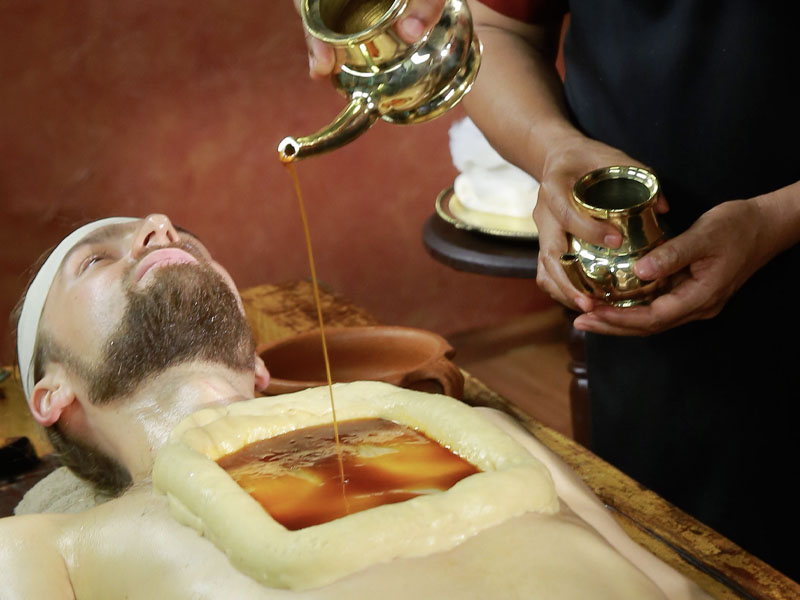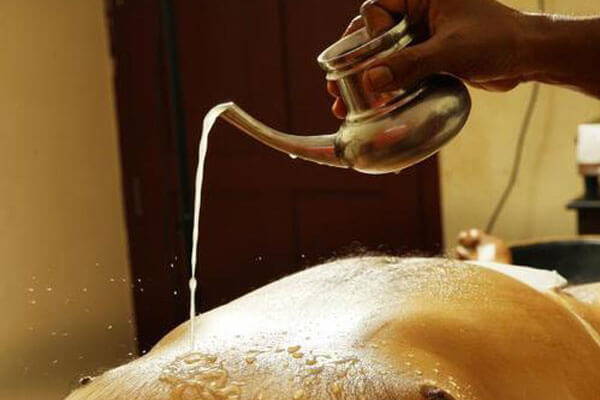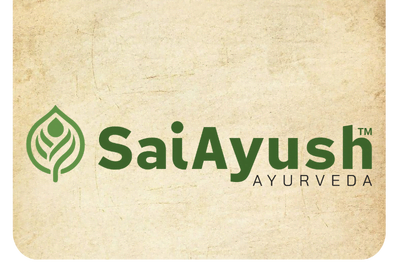Ayurveda Treatment for Hypertension
What is Very High Blood Pressure?


Understanding Blood Pressure Readings
- The highest value on a blood pressure reading, systolic pressure, is the pressure in the arteries during a heartbeat.
- Diastolic pressure is the lowest figure and it shows the artery pressure during periods of rest between beats of the heart.
- In general, a value of 120/80 mm Hg is typical. When readings routinely rise over 130/80 mm Hg, hypertension is diagnosed.
Hypertension Types:
Primary (Essential) Hypertension: The most prevalent kind, it appears gradually over many years with no known reason. Caused by an underlying illness such hormonal imbalances, kidney disease, or specific drugs is known as secondary hypertension.


Indications of High Blood Pressure
Given that high blood pressure may not show any signs, it is sometimes referred to as a “silent killer”. Should symptoms materialise, they may include:
- Caches
- Prolonged dyspnea
- Nosebleeds
- Refreshing
- Emotional instability
- Angina
- Obvious issues
Risks and Background Information Regarding Hypertension:
A number of things can lead to high blood pressure development, such as:
- The genetics: Hypertension in the family
- Age: As one ages, blood pressure often rises.
- Lifestyle factors include smoking, obesity, eating poorly, indolence, and binge drinking.
- Diabetic, hypercholesterolemic, renal, and sleep apneic conditions are chronic conditions.
- Complicacies in Health


Untreated, high blood pressure can result in major health problems including:
- Conditions of the heart
- Pain
- Injury to the kidneys
- Low vision
- Gallbladders
- Mental deterioration
Is Ayurveda for blood pressure effective?
The Indian traditional medical system known as Ayurveda provides all-natural and comprehensive methods of controlling hypertension, or high blood pressure. Ayurvedic blood pressure treatment works because of tailored therapies that target the underlying cause of the illness and bring the body’s doshas—Vata, Pitta, and Kapha—in balance. The following describe some ways in which Ayurveda can help control high blood pressure:
Natural Herbs for High Blood Pressure (Hypertension)
Many plants recognised to reduce blood pressure are used in Ayurveda, including:
As withania somnifera, ashwagandha lowers blood pressure and stress. Arjuna, or Terminalia arjuna, strengthens the heart and enhances cardiovascular health. Brahmi, or Bacopa monnieri, possesses antioxidant and stress-reduction qualities.Trio of fruits called triphala cleanses and harmonises the body.
Nutritional Advice:
Through emphasising a balanced diet, Ayurvedic dietary recommendations assist control high blood pressure:
Reducing Salt Intake: Eat less of the salty meals to reduce your sodium intake.
Fresh Fruit and Vegetables: Stressing the need of a diet high in vitamins, minerals, and antioxidants.Strictly avoiding processed and high-fat foods.
Hydration: Sufficient water consumption to preserve appropriate fluid balance.
Modifications in Lifestyle:
In order to help control blood pressure, Ayurveda suggests lifestyle modifications:
Frequent Exercise: Taking up mild stretching, yoga, and walking.
Stress management includes lowering stress levels by mindfulness, deep breathing techniques, and meditation.
Aiming for 7-8 hours of peaceful sleep per night will help maintain general health.
High blood pressure can be managed by these Ayurvedic treatments:
Abhyanga, or oil massage, soothes and increases circulation.
Pouring warm oil over the forehead, or shirodhara, helps to relax and lower stress.
A detoxifying procedure called panchakarma balances the doshas and eliminates poisons.
Relation between the Mind and Body In maintaining health, Ayurveda stresses the need of the mind-body connection:
Mental Health Practices: Decreased anxiety and mental clarity from practices like yoga and meditation might help lower blood pressure.
We offer you a disease free life:
Though a lot of people say Ayurveda helps them control their high blood pressure, there is inconsistent scientific data, hence additional study is required to be sure. Notably:
Individual Variability: Different people may find Ayurvedic treatments to be more or less successful.
Complementary Approach: Ayurveda can be utilised in conjunction with traditional therapies when medical professionals advise you to do so.
Professional Advice: Individualised and secure treatment regimens are guaranteed when one consults a licenced Ayurvedic practitioner.We offer you a disease free life
FAQs
Frequently Asked Questions
Q:Firstly, what is hypertension and how is it diagnosed?
A:When blood pressure against artery walls is continuously too high, a condition known as hypertension, or high blood pressure, results. A blood pressure monitor is used to make the diagnosis; hypertension is indicated by values of 130/80 mm Hg or greater. To be sure the diagnosis, a medical professional might take several readings over time.
Q:How may Ayurveda be used to treat hypertension?
A:By treating the root causes of hypertension and restoring balance to the body’s doshas (Vata, Pitta, and Kapha), Ayurveda aids in its treatment. It combines the use of natural remedies, changes in diet, lifestyle modifications, stress-reduction plans, and particular therapies like Panchakarma (detoxification) and Abhyanga (oil massage) to raise general health and lower blood pressure.
Q:Which Ayurvedic herbs work well for hypertension?
A:Among the Ayurvedic herbs that work well for hypertension are Withania somnifera, or ashwagandha: said to decrease blood pressure and stress. Arjuna, or Terminalia arjuna, lowers blood pressure and promotes heart health. Bacopa monnieri, or Brahmi: Stress-reduction and mental calm. Rauwolfia serpentina, or sarpagandha, has long been used to treat high blood pressure.
Q:Can dietary advice from Ayurveda help control hypertension?
A:Ayurvedic dietary advice can indeed help control hypertension. Important recommendations consist on:
- cutting back on salt to lessen sodium levels.
- Consuming a diet heavy in lean proteins, healthy grains, fresh fruits and vegetables.
- Steer clear of processed and highly fattening foods.
- Adding such heart-healthy spices as ginger, garlic, and turmeric.
- Consuming enough of water to maintain good hydration.
Q:How is stress management included into the Ayurvedic approach to treating hypertension?
A:One of the mainstays of Ayurvedic treatment for hypertension is stress management. Ayurveda uses methods to lower stress levels include yoga, meditation, deep breathing exercises, and mindfulness. Good stress management can drop blood pressure dramatically and enhance general health.
Q:Sixth, what particular Ayurvedic treatments are employed to treat hypertension?
A:Among the particular Ayurvedic treatments for hypertension are:
- Oil massages, or abhyangas, improve circulation, soothe muscles, and lower stress.
- Detoxing, or panchakarma, balances doshas, rids the body of poisons, and improves general health.
- Shirodhara: A stress-reduction and mental-calming treatment in which warm oil is poured over the forehead.
- Nasyam: Using the nose to administer herbal powders or oils to unclog passageways and enhance respiratory health.
Q:Can Ayurvedic treatments for hypertension be combined with traditional ones and are they safe?
A:When given by a licenced practitioner, ayurvedic remedies for hypertension are usually safe. They employ noninvasive treatment and natural plants. To be sure the treatments are suitable and to prevent any possible interactions, one must, however, speak with both an Ayurvedic practitioner and a conventional healthcare physician. One can manage hypertension comprehensively by combining Ayurvedic therapies with modern medication

